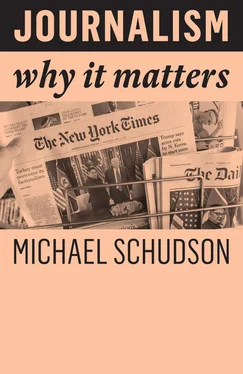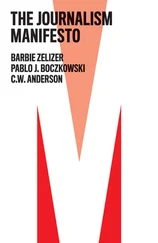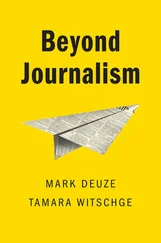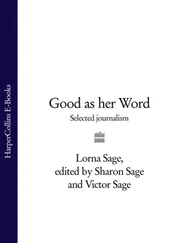1 Cover
2 Front Matter Journalism Why It Matters Michael Schudson polity
3 1 Introduction Notes
4 2 What Kind of Journalism Matters Most? Notes
5 3 Reported, Compelling, and Assertive Reported Compelling Assertive Notes
6 4 The Problem of Media Bias Notes
7 5 Evidence That Journalism Matters (or Doesn’t) Knowing Where We Are – Flagging and Naming Contemporary Currents Making Relevant New Information Available Holding Power Accountable Notes
8 6 Why Technology is Not the Whole Story Notes
9 7 Journalism’s Four Non-Revolutions From Professional Journalism to Citizen Journalism From Print Journalism to Digital Journalism From Stories to Databases From Top-Down (Vertical) to Shareable (Horizontal) Communication Notes
10 8 Is There a Future for Journalism? Notes
11 Further Reading
12 End User License Agreement
1 Cover
2 Table of Contents
3 Begin Reading
1 ii
2 iii
3 iv
4 v
5 viii
6 ix
7 x
8 1
9 2
10 3
11 4
12 5
13 6
14 7
15 8
16 9
17 10
18 11
19 12
20 13
21 14
22 15
23 16
24 17
25 18
26 19
27 20
28 21
29 22
30 23
31 24
32 25
33 26
34 27
35 28
36 29
37 30
38 31
39 32
40 33
41 34
42 35
43 36
44 37
45 38
46 39
47 40
48 41
49 42
50 43
51 44
52 45
53 46
54 47
55 48
56 49
57 50
58 51
59 52
60 53
61 54
62 55
63 56
64 57
65 58
66 59
67 60
68 61
69 62
70 63
71 64
72 65
73 66
74 67
75 68
76 69
77 70
78 71
79 72
80 73
81 74
82 75
83 76
84 77
85 78
86 79
87 80
88 81
89 82
90 83
91 84
92 85
93 86
94 87
95 88
96 89
97 90
98 91
99 92
100 93
101 94
102 95
103 96
104 97
105 98
106 99
107 100
108 101
109 102
110 103
111 104
112 105
113 106
114 107
115 108
116 109
117 110
118 111
119 112
120 113
121 114
122 115
123 116
124 129
125 130
126 131
127 132
128 133
Polity’s Why It Matters series
In these short and lively books, world-leading thinkers make the case for the importance of their subjects and aim to inspire a new generation of students.
Helen Beebee & Michael Rush, Philosophy
Nick Couldry, Media
Robert Eaglestone, Literature
Andrew Gamble, Politics
Lynn Hunt, History
Tim Ingold, Anthropology
Neville Morley, Classics
Alexander B. Murphy, Geography
Geoffrey K. Pullum, Linguistics
Michael Schudson, Journalism
Graham Ward, Theology and Religion
Journalism
Why It Matters
Michael Schudson
polity
Copyright © Michael Schudson 2020
The right of Michael Schudson to be identified as Author of this Work has been asserted in accordance with the UK Copyright, Designs and Patents Act 1988.
First published in 2020 by Polity Press
Polity Press
65 Bridge Street
Cambridge CB2 1UR, UK
Polity Press
101 Station Landing
Suite 300
Medford, MA 02155, USA
All rights reserved. Except for the quotation of short passages for the purpose of criticism and review, no part of this publication may be reproduced, stored in a retrieval system or transmitted, in any form or by any means, electronic, mechanical, photocopying, recording or otherwise, without the prior permission of the publisher.
ISBN-13: 978-1-5095-3856-0
A catalogue record for this book is available from the British Library.
Library of Congress Cataloging-in-Publication Data
Names: Schudson, Michael, author.
Title: Journalism / Michael Schudson.
Description: Cambridge, UK ; Medford, MA : Polity, 2020. | Series: Why it matters series | Summary: “Why, in the age of Trump and fake news, journalism matters more than ever”-- Provided by publisher.
Identifiers: LCCN 2019042874 (print) | LCCN 2019042875 (ebook) | ISBN 9781509538546 (hardback) | ISBN 9781509538553 (paperback) | ISBN 9781509538560 (epub)
Subjects: LCSH: Journalism--Philosophy.
Classification: LCC PN4731 .S2485 2020 (print) | LCC PN4731 (ebook) | DDC 070.401--dc23
LC record available at https://lccn.loc.gov/2019042874LC ebook record available at https://lccn.loc.gov/2019042875
The publisher has used its best endeavours to ensure that the URLs for external websites referred to in this book are correct and active at the time of going to press. However, the publisher has no responsibility for the websites and can make no guarantee that a site will remain live or that the content is or will remain appropriate.
Every effort has been made to trace all copyright holders, but if any have been overlooked the publisher will be pleased to include any necessary credits in any subsequent reprint or edition.
For further information on Polity, visit our website: politybooks.com
For Noah
I am grateful to John Thompson of Polity Press for inviting me to do this book. Since the 1970s I have been studying and writing about aspects of the news media, especially the history and sociology of American journalism. Putting what I know or what I think I know about journalism into a form suitable for young men and women seeking a quick tour of the field, and in a way that might also interest journalists and scholars, was a challenge I was interested to take on. It would force me to articulate in a more complete way than I had yet done what I think about journalism and why I think journalism, at its best, is so important. I am grateful also to John for honestly telling me a couple of drafts ago when he thought I did not have journalism’s story quite right.
Other trusted critics of earlier drafts include Julia Sonnevend, my wife and a media scholar in her own right. Julia was the first brave soul to make her way through the manuscript. I am grateful to her for pretty much everything in my life but, in this case, for her intellectual acuity and honesty.
Polity’s three anonymous reviewers were excellent – appreciative of the draft they saw but critical, too. Justin Dyer, Polity’s outstanding copyeditor, cleaned up so many sentences I had judged perfect and clarified so many passages I knew were crystalline – well, dear reader, thank heaven you do not have to read what he did! Adelina Yankova, a current Columbia Ph.D. student, helped with some eleventh-hour research and offered astute comments on the whole manuscript. My former doctoral student and now director of the Reuters Institute for the Study of Journalism, Rasmus Kleis Nielsen, read the manuscript and steered me clear of some pitfalls. I have benefited again from his informed and realistic assessment of journalism, as of democracy itself, and about what these two institutions can – and cannot – achieve. My Columbia Journalism School colleagues and students are visible in the text and the endnotes and I am grateful to Nicholas Lemann for having persuaded me to join the Columbia faculty in the midst of journalism’s digital transformations and the School’s attendant curricular changes. The very corridors of Pulitzer Hall reverberate with the ideals of journalism that this book tries to honor.
Читать дальше












